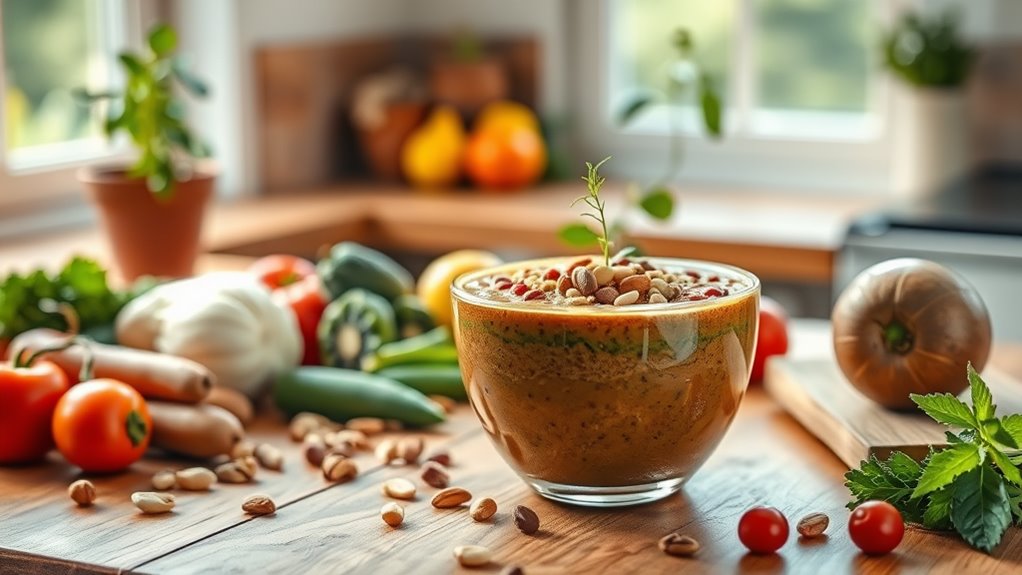Is Your Gut Happy. Try These 5 Tiny Changes
Key Takeaways
- Increase fiber intake by including fruits, vegetables, whole grains, and legumes to support digestion and gut health.
- Stay hydrated by drinking at least eight glasses of water daily to aid digestion and nutrient absorption.
- Incorporate probiotic-rich foods like yogurt, kefir, and sauerkraut to balance gut bacteria and enhance digestion.
- Limit processed foods to improve digestive health by focusing on whole, nutrient-dense options.
- Manage stress through mindfulness practices, physical activity, and sufficient sleep to support overall gut well-being.
Increase Your Fiber Intake
Increasing your fiber intake is one of the most effective steps you can take to enhance your gut health.
Incorporate a variety of fruits, vegetables, whole grains, and legumes into your meals. These gut health food tips not only support digestion but also foster beneficial bacteria. Aim for at least 25-30 grams of fiber daily for ideal gut function and overall well-being. Additionally, a diet rich in fiber can help promote beneficial bacteria that are essential for a healthy gut microbiome.
Stay Hydrated
While you might overlook it, staying hydrated is essential for maintaining ideal gut health.
Water aids digestion, helps break down food, and facilitates nutrient absorption. It also plays a vital role in maintaining the mucosal lining of the intestines. Moreover, adequate hydration can boost immunity by ensuring that the body functions optimally and can fend off illnesses.
Aim for at least eight glasses of water daily, adjusting for activity levels and climate, to support your gut’s functioning effectively.
Incorporate Probiotic-Rich Foods
Maintaining hydration sets the stage for gut health, but incorporating probiotic-rich foods into your diet can further enhance your digestive system.
Here are four options to contemplate:
- Yogurt with live cultures
- Sauerkraut and kimchi
- Kefir, a fermented milk drink
- Miso, a fermented soybean paste
These foods can help balance gut bacteria, improving digestion and overall health. Additionally, consuming probiotic-rich foods may contribute to a stronger immune system, supporting your body’s defenses against illness.
Limit Processed Foods
To foster a healthy gut, you should limit processed foods, as they often contain additives and preservatives that can disrupt gut flora. Focus on whole, nutrient-dense foods to support your digestive health. Here’s a quick comparison of processed versus whole foods:
| Processed Foods | Whole Foods |
|---|---|
| High in additives | Nutrient-dense |
| Low fiber content | High fiber content |
| Often high in sugar | Naturally sweet |
Additionally, eliminating junk food can lead to improved digestion, which further benefits your overall well-being.
Manage Stress Effectively
Processed foods can elevate stress levels and contribute to gut imbalances, so managing stress effectively is key to promoting digestive health.
Here are four practical strategies to help you reduce stress:
- Practice mindfulness through meditation or deep breathing.
- Engage in regular physical activity.
- Maintain social connections for emotional support.
- Prioritize adequate sleep to rejuvenate your body and mind.
Incorporating herbs like healing herbs into your meals can also support your gut health and overall well-being.
Implement these changes for better gut health.

